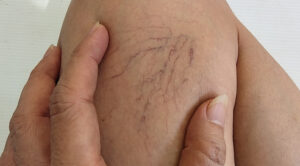Family History Increases Risk Of Developing Varicose Veins
Varicose veins are a common condition that affects millions of people across the globe. While most commonly known for their unsightly appearance, these abnormally dilated veins can also pose serious health risks if left untreated. Among the numerous factors that contribute to the development of varicose veins, family history has been identified as one of the most significant risk factors. At the Arizona Vein & Laser Institute, we understand the importance of keeping you informed about the factors that contribute to this condition. Read on to learn how family history increases the risk of developing varicose veins and what you can do to manage this risk.
 Understanding Varicose Veins
Understanding Varicose Veins
Before diving into the role of family history in the development of varicose veins, it is essential to understand what they are and how they occur. Varicose veins are enlarged, twisted, and sometimes painful veins that commonly appear in the legs and feet. They occur when the small valves inside the veins that return blood to the heart no longer function correctly, causing blood to pool in the veins and for the walls to become dilated and less elastic.
The Genetic Factors Contributing to Varicose Veins
There is a clear genetic component to varicose veins, with heredity playing a significant part in your risk of developing the condition. Several genes have been identified in affecting the overall strength and elasticity of your veins. If your parents or immediate family members have experienced varicose veins, there is a higher likelihood that you may also develop them. Studies have shown that having a family history of varicose veins can elevate your risk by as much as 90%.
Understanding Other Risk Factors
Family history is a strong predictor for the development of varicose veins, but there are other factors that contribute to the formation of this condition. These include age, gender, obesity, pregnancy, hormonal factors, and a sedentary lifestyle. Some of these risk factors are modifiable, meaning that making certain lifestyle changes can lower your risk of developing varicose veins.
Managing Your Risk
If you have a family history of varicose veins or any of the other risk factors mentioned above, it is important to consider how you can manage your risk. This may involve maintaining a healthy weight, engaging in regular exercise, wearing compression stockings, and avoiding long periods of sitting or standing. For those who have already developed varicose veins, seeking treatment from a specialist like those at the Arizona Vein & Laser Institute can help manage symptoms and minimize complications.
Importance of Early Intervention
Understanding and managing the risk of developing varicose veins can help you stay proactive in maintaining your arterial health. Early intervention is critical when it comes to managing this condition, as untreated varicose veins can lead to more severe issues such as chronic venous insufficiency, leg ulcers, and deep vein thrombosis. By staying informed about your family history and making lifestyle adjustments, when necessary, you can take control of your venous health.
Enlist the Help of the Arizona Vein and Laser Institute Today!
The link between family history and the risk of developing varicose veins highlights the importance of being proactive with your venous health. If you have a family history of varicose veins or any of the other risk factors, take steps to manage your risk, and consider seeking help from vein specialists like those at the Arizona Vein & Laser Institute. By staying informed and acting early, you can protect yourself and your family from the uncomfortable and potentially dangerous effects of varicose veins. Contact the team at Arizona Vein & Laser Institute today at 602-298-8346 to schedule a consultation!
